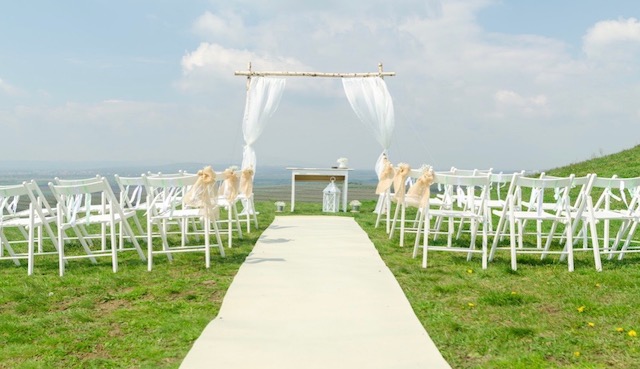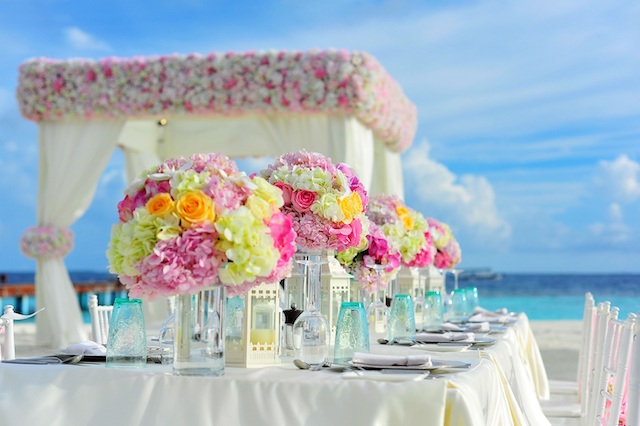Choosing the perfect wedding venue is one of the most important decisions a couple will make while planning their big day. The venue sets the tone for the entire event, influencing everything from the theme and décor to the number of guests and overall experience. With so many options available, from elegant ballrooms and charming barns to beachfront resorts and historic castles, narrowing down the ideal location can feel overwhelming.
A well-chosen venue ensures that the wedding reflects the couple’s vision while accommodating guests comfortably. Whether planning an intimate gathering or a grand celebration, finding the right venue requires thoughtful consideration of several essential factors.
Determining Your Budget and Guest Count
Before searching for a wedding venue, it’s crucial to establish a realistic budget. The cost of a venue can vary widely depending on location, amenities, and exclusivity. Many venues offer all-inclusive packages that cover catering, decorations, and entertainment, while others require couples to book vendors separately. Understanding the total cost, including hidden fees for service charges, rentals, and overtime, prevents unexpected expenses later on.
The guest count also plays a significant role in choosing a venue. An intimate wedding with close friends and family may call for a cozy countryside estate, whereas a large reception requires a venue with ample space to accommodate guests comfortably. Selecting a venue that aligns with the estimated number of attendees ensures that the event feels neither too crowded nor too empty.
Exploring Location and Accessibility
The venue’s location influences travel arrangements for both the couple and their guests. Couples should consider whether they prefer a local venue or a destination wedding, keeping in mind the convenience and travel costs for their guests. A centrally located venue with good transport links makes it easier for attendees to arrive on time, especially for out-of-town guests who may need nearby hotel accommodations.
Accessibility is another critical factor. Whether it’s a Scottish borders venue or another beautiful location, it should be easy to navigate, with clear parking options and facilities that accommodate guests with mobility challenges. Some venues provide shuttle services for convenience, while others may have limited accessibility due to remote locations or historic architecture. Ensuring that all guests can reach and enjoy the event comfortably creates a more inclusive and stress-free experience.
Matching the Venue to Your Wedding Theme
The venue should complement the couple’s wedding theme and style. A modern wedding calls for sleek, contemporary spaces like luxury hotels, rooftop gardens, or chic art galleries, while a rustic wedding feels more at home in a barn, vineyard, or woodland setting. Romantic weddings thrive in historic mansions or elegant ballrooms, whereas adventurous couples may opt for a beach, mountaintop, or botanical garden.
The venue’s existing décor, architecture, and ambience should align with the desired aesthetic. Transforming a venue’s style through extensive decorations can be costly, so selecting a location that naturally fits the wedding vision saves both time and money. Couples should visit multiple venues to see how each space feels and determine whether it matches their dream wedding atmosphere.
Reviewing Venue Packages and Inclusions
Venues differ in the services they provide, and understanding what is included in the booking is essential for effective planning. Some venues offer full-service packages that include catering, event coordination, tables, chairs, and decorations. Others require couples to arrange their own vendors, which provides more flexibility but may involve additional logistics.
Many venues also have preferred vendor lists, which can simplify the planning process by recommending trusted photographers, florists, and DJs. Couples should clarify details such as menu options, bar services, rental inclusions, and additional fees for setup and clean-up. Reviewing the contract carefully ensures that expectations are clear and prevents last-minute surprises.
Considering Seasonal and Weather Factors
Seasonal changes can greatly impact the wedding experience, particularly for outdoor venues. A spring or summer wedding may benefit from gardens in full bloom, while autumn weddings create picturesque backdrops with colourful foliage. Winter weddings offer a magical atmosphere, but colder temperatures may require indoor venues or heated tents.
If choosing an outdoor venue, it’s essential to have a backup plan in case of unexpected weather conditions. Many venues offer indoor alternatives or tented areas to accommodate guests comfortably. Checking whether the venue provides climate control, shaded areas, or contingency spaces ensures a smooth event regardless of the season.
Evaluating Catering and Bar Services
Food and beverages play a significant role in guest satisfaction, making catering services a vital consideration. Some venues have in-house catering with pre-set menus, while others allow external catering for more personalised options. Tasting sessions help couples assess food quality and select a menu that suits dietary preferences and cultural traditions.
Bar services should also be reviewed, including options for an open bar, cash bar, or limited drink selection. Some venues have liquor licenses and require couples to purchase alcohol through them, while others allow outside alcohol with corkage fees. Understanding these policies in advance ensures seamless coordination of refreshments and service staff.
Checking Venue Restrictions and Policies
Each venue has specific rules and policies that may impact the wedding plans. Noise restrictions, curfews, and permitted décor should be discussed in advance to avoid misunderstandings. Some venues limit music volume or require the event to end by a certain time, particularly in residential areas.
Decor restrictions may include limitations on candles, confetti, or hanging installations. If planning a grand exit with fireworks or sparklers, it’s important to confirm whether the venue allows such features. Clarifying these details ensures that the wedding vision aligns with the venue’s policies.
Reading Reviews and Seeking Recommendations
Couples should research online reviews and testimonials from past clients to gauge the venue’s reputation. Reading about others’ experiences provides insight into the quality of service, professionalism of the staff, and overall event execution. Wedding forums and social media groups can also offer valuable recommendations and first-hand accounts from couples who have used the venue.
A venue tour is an excellent opportunity to assess the space in person, ask questions, and meet the event coordinators. Bringing a list of questions and noting key details helps with decision-making and ensures that no important aspects are overlooked.

Selecting a wedding venue is a major decision that impacts every aspect of the big day. From budgeting and guest accommodations to catering and seasonal considerations, each detail plays a role in creating a smooth and enjoyable event. The right venue should align with the couple’s vision, offer practical amenities, and provide exceptional service to make the occasion truly special.
Taking the time to visit potential venues, ask the right questions, and review contracts carefully ensures a well-informed decision. With careful planning and thoughtful consideration, couples can secure a venue that enhances their wedding day and creates lasting memories for themselves and their guests.




